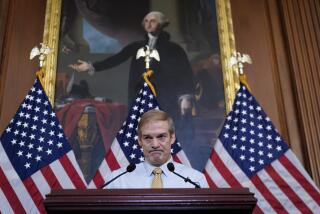Breaking through the noise of social media
- Share via
Way back in the 20th century, “buzz” was the je ne sais quoi of the marketing world. Every company wanted it, but few presumed to know how to get it. Back then, corporations generally lobbed their products into the marketplace, bombarded consumers with repetitive messages and sat back and prayed that buzz would magically appear.
That, of course, changed as companies learned how to harness the Internet. And, as social media like MySpace and Facebook emerged, marketing became less of a monologue and more of a multiparty conversation. It suddenly wasn’t enough for companies and their spokespersons to speak down to consumers from the mountaintop. The new challenge was how to get consumers to say good things about a product to one another.
The rise of social media has been part and parcel of the devolution of authoritative information and the flowering of a million cacophonous voices. It not only changed the way companies looked at consumers but how consumers looked at each other. By 2005, surveys showed that when it came to the marketplace, Americans were beginning to trust their peers more than well-known authorities and experts. The following year, according to the Trust Barometer Survey conducted by Edelman, an international public relations firm, saw the emergence of “a person like me” as a credible spokesperson for companies and products.
By 2010, nearly four in five corporations were planning to move money they once spent on television advertising to some sort of social media campaign. Two weeks ago, Pepsi chose to forgo a high-profile TV spot at halftime of the Super Bowl for a social-media-driven charity campaign that will award the nonprofit organizations that muster the most votes through virtual social networks. Could there be any better proof that social media is the future of marketing?
But hold on, now comes Edelman’s 2010 Trust Barometer. The latest findings fly in the face of that formerly new conventional wisdom.
According to the survey, since 2008 the number of people who view their friends and peers as credible sources of consumer and business information dropped by almost half, from 45% to 25%. Similarly, in the past year, the number of people who view peers as credible spokespersons also slipped. Even more strikingly, however, after a precipitous decline earlier in the decade, informed consumers have regained trust in traditional authorities and experts.
What’s going on? Are Facebook friends turning on each other? Did we lose faith in ourselves? Is social media just a fluke?
None of the above, says Gail Becker, Edelman’s Western regional president. After sifting through the data, she concludes that consumers are merely rebelling against all the noise and reflecting the effects of uncertain times.
A few years ago, when peer-to-peer trust was at a peak, social media was still relatively new and its circles were manageable. But since then, the number of friend networks has exploded and every kind of business, for-profit and not, has sought to harness -- we might say, exploit -- them for their gain. That, according to Becker, has made people more skeptical of peer recommendations.
“Social media is more professionalized now and less organic,” says Becker. “It’s harder to know who to trust.”
And in troubled times, such uncertainty is magnified. All of this explains the rise in the
number of people willing to
pay attention to sources like proven academics and experts. After indulging the thoughts and opinions of anyone who was “just like me,” it seems that people are now looking for a firmer guarantee of clarity, objectivity and accuracy.
Although these findings are mostly about business and financial matters, they surely also have broader significance. They suggest that the flattening of authority may not go on forever, and that there are limits to Americans’ belief in Everyman.
I’d like to think that this bodes well for one of the old, authoritative sources of information, the traditional media. Unfortunately, so far the survey also shows that the credibility of television and radio news and newspapers continued to take a beating over the past two years.
Cacophony and crisis prove the need for objectivity and expertise. What a relief. Call it old-fashioned, hierarchical or elitist, but in an era in which issues are only becoming more complicated, it’s about time.
grodriguez@latimes
columnists.com






